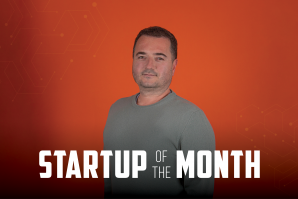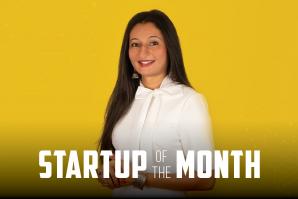From crafting with popsicle sticks in elementary school to working with small electronic devices in middle school, Kavya Khare clearly had DIY in her DNA. At Valley Christian High School, she upgraded her skills to start building a business. Six years later, she is now the founder of The Make Box, a UC Davis and Bay Area-based startup that creates modular robotic kits, SnapBots, for young students to engage in STEM.
“Middle schoolers specifically feel very bored or unchallenged in their STEM classes,” she says, “and some don’t even have the opportunity to engage in hands-on STEM.”
Traditional teaching methods tend to cater toward logical and mathematical learners, she says. But her experience was different. Khare’s Project Lead The Way teacher made learning more hands-on, and she believes more kids would benefit from this interactive approach.
So how does her creation work? Each SnapBots kit has five cubes that magnetically connect to each other on any side. Each cube has a different function, which can be programmed, including light sensing, sound activation and a block that responds to touch. Snap, program and play, she calls it.
Khare originally showcased her SnapBots at the Maker Faire Bay Area in 2019, where she won an engagement award because so many kids were drawn to her booth.
“It was so simple for a student to connect a light block to another cube,” she says. “And they also loved the option of customizing their own robot, too.”
After receiving positive feedback, she conducted surveys at summer camps. Many kids found STEM kits exciting at first, but the novelty faded. This convinced Khare her original concept, built for customization, was on the right track. Through the UC Davis startup accelerator program, PLASMA, she created a physical, programmable version of her design. At this point, she also expanded the team, recruiting undergrads to help develop the prototype.
“I also work in the (electrical and computer engineering) department at school,” she says. “I sent out an email to everyone saying, ‘If you’re interested in working on a student-led startup, you will get hands-on experience.’ So I sent that out, did a bunch of interviews, and I got really talented people through that.”
In her senior year, as an electrical engineering major, she chose to develop the next version as her senior design project. Rajeevan Amirtharajah, a UC Davis professor of engineering, accepted her project proposal and became an advisor. Over the course of two quarters, he met with the team weekly to review progress.
“It’s always challenging to come up with an interface for the user that is intuitive, which also allows for flexibility for the user to be creative,” Amirtharajah says. “The SnapBots concept of having blocks that snap together with electronics is hard to achieve technically because the interface is so simple.”
A professor at UC Davis for 22 years, he says The Make Box team ranks among the best he has ever mentored. The team spent months figuring out how to introduce software and programming to young students with no technical background, he says.
After several attempts, something clicked: The hardware and software could mirror each other. Kids could drag and drop blocks of code the same way they snap physical blocks together. From there, the team pushed for even more flexibility.
“Legos are flexible, but you snap them in one way, where the pegs are,” Amirtharajah says. “With SnapBots, they wanted to use as many different connections as possible.”
Customization is where SnapBots really excels. Kids can evolve their builds over time, adding more complexity as they go.
“We have more complicated projects, where they can snap all five cubes together to build things like an alarm clock,” Khare says. “For example, if a light block detects daylight, then it’s morning, and the sound block can actually play their favorite song and wake them up.”
In May, The Make Box team won the $12,500 Education and Educational Tools sector award in the UC Davis Big Bang competition. Next, the team plans to use the funds to develop 20 kits to offer free workshops to schools in a pilot program.
–
Stay up to date on innovation in the Capital Region: Subscribe to the Comstock’s newsletter today!
Recommended For You

Startup of the Month: CREE8
A ‘studio in the cloud’ connects creatives worldwide
“I wanted to build a platform that removed those barriers,” says Lisa M. Watts, CEO and founder of CREE8, “enabling creators to work from anywhere with the same power as an enterprise-grade studio. Truly reinventing the future of work.”

Startup of the Month: Alter Learning
STEAM games designed to make education fun for kids
As an Albanian immigrant who grew up poor, Aldi Agaj dreamed for his children to have the access and opportunities he didn’t have. When his daughter was 4, he had an idea to create an edtech company that gives kids free access to innovative games.

Startup of the Month: PowerTechs
Virtual ‘cockpits’ train tomorrow’s workforce in immersive environments
“Using XR technology enables PowerTechs to immerse workers and students in a realistic, simulated environment where their skills can be assessed authentically,” founder Ksenia Solomatina says.

Startup of the Month: Matrubials
UC Davis spinoff finds big potential in breast milk
Breast milk has antibiotic-like health benefits? It sure does. Matrubials, a startup out of UC Davis, is developing products that use breast milk components to treat bacterial infections.



